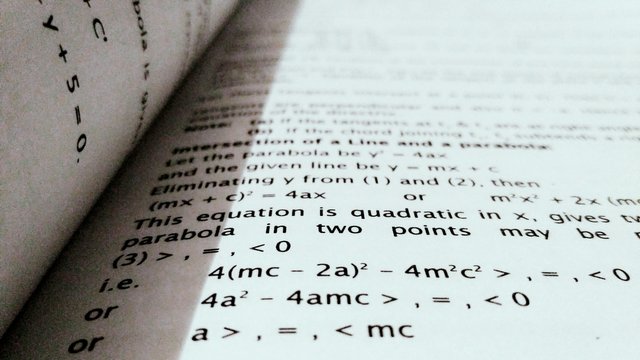
Imagine starting your first college calculus class only to be overwhelmed by unfamiliar terms and complex problems. For many freshmen, calculus can seem like an insurmountable challenge. In fact, a 2018 study by the Mathematical Association of America found that 25% of students fail their first calculus course. However, grasping essential concepts early can make a significant difference in your academic journey and open doors to various disciplines such as physics, engineering, and economics.
Get Ready for Difficulties
Calculus is often seen as a challenging subject, with its complex theories and extensive application in various scientific fields. Many learners find themselves intimidated by its intricate equations and the high level of analytical thinking required. This can lead to a lack of confidence and a fear of tackling mathematical problems. For students who struggle with these concepts, seeking calculus assignment helpcan provide valuable guidance and support, ensuring they build a strong mathematical foundation. By accessing professional assistance, learners can not only grasp difficult topics more effectively but also enhance their overall academic performance. This type of support is particularly beneficial for those who aim to utilize calculus in future career paths, as it solidifies essential skills and boosts intellectual growth.
Limits and Continuity
Understanding the foundation of calculus begins with limits and continuity. Limits help us understand the behavior of functions as they approach specific points, even if they never actually reach those points. For instance, consider the function f(x) = 1/x. As x approaches zero, f(x) increases without bound. This concept is crucial for analyzing trends and making predictions in real-world scenarios. Continuity, on the other hand, ensures that a function behaves predictably without any abrupt changes. These foundational ideas underpin much of calculus and are pivotal for understanding more advanced topics.
Derivatives and Their Applications
Moving on to derivatives, these represent the rate of change of a function concerning its variables. In simpler terms, derivatives tell us how a function's output changes as its input changes. This concept is particularly useful in physics for determining velocity and acceleration. For example, if the position of an object is given by s(t) = 5t^2, its velocity v(t) is the derivative of s(t), which is v(t) = 10t. This application extends beyond physics into areas like economics, where derivatives help optimize profit functions by analyzing marginal costs and revenues. According to a 2020 report by the Bureau of Labor Statistics, economists use calculus to forecast economic trends and inform policy decisions.
Integrals and Their Uses
Integrals, another cornerstone of calculus, are essentially the reverse of derivatives. They help in finding areas under curves, which is critical in numerous practical applications. For instance, integrals are used to calculate the distance traveled by an object when given its velocity over time. The Fundamental Theorem of Calculus establishes a direct connection between differentiation and integration, showing that they are, in essence, inverse operations. This relationship is vital for solving real-world problems involving cumulative quantities. A study by MIT in 2021 demonstrated that integrals are crucial in environmental science for modeling pollutant dispersion.
Techniques of Integration
Understanding different techniques of integration is essential for tackling complex integrals. Methods such as substitution and integration by parts are commonly used to simplify and solve integrals that appear daunting at first glance. For example, the integral of e^(2x) can be solved using substitution by letting u = 2x, making it more manageable. Mastery of these techniques is crucial for students as they progress in their studies and encounter more intricate mathematical problems. The University of California's math department emphasizes the importance of these techniques in their curriculum, highlighting their applications in engineering and physical sciences.
Sequences and Series
Sequences and series form another critical area of calculus. A sequence is an ordered list of numbers, while a series is the sum of the terms of a sequence. The concepts of convergence and divergence determine whether a series has a finite limit or grows indefinitely. For instance, the harmonic series (1 + 1/2 + 1/3 + 1/4 + ...) diverges, meaning its sum grows without bound. Understanding these concepts is essential for approximating functions using power series, which are incredibly useful in fields such as engineering and computer science. A 2022 article in the Journal of Applied Mathematics noted that power series are fundamental in solving differential equations in engineering.
Multivariable Calculus
In more advanced studies, multivariable calculus extends these ideas to functions of several variables. This branch of calculus is pivotal for fields that involve multidimensional data. Partial derivatives, for example, measure the rate of change of a function concerning one variable while keeping others constant. These are crucial in optimization problems where we need to find maximum or minimum values of functions with several variables. Double and triple integrals are used to calculate volumes in higher dimensions, which is essential in physics and engineering. NASA's research in 2023 on space mission trajectories heavily relies on multivariable calculus to predict and optimize paths.
Conclusion
In conclusion, mastering essential calculus concepts such as limits, derivatives, integrals, and multivariable functions is crucial for every college freshman. These ideas form the backbone of many scientific and engineering disciplines, providing the tools needed to analyze and solve complex problems. Understanding these foundational topics will not only aid in academic success but also in various professional fields, making calculus an indispensable part of higher education.
For further reading and resources on calculus, students can refer to credible sources like the National Institute of Standards and Technology and educational platforms like Khan Academy, which offer comprehensive tutorials and practice exercises.